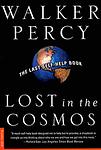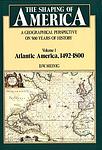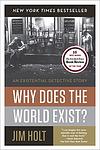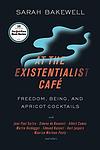The Greatest "Nonfiction, Existentialist" Books of All Time
Click to learn how this list is calculated.
This list represents a comprehensive and trusted collection of the greatest books. Developed through a specialized algorithm, it brings together 300 'best of' book lists to form a definitive guide to the world's most acclaimed books. For those interested in how these books are chosen, additional details can be found on the rankings page.
Genres
Existentialist literature is a genre that explores the meaning and purpose of human existence, often through the lens of individual experience and subjective perception. These books often delve into themes of freedom, choice, and responsibility, and may challenge traditional notions of morality and societal norms. Existentialist literature can be introspective and philosophical, and may offer readers a unique perspective on the human condition and the search for meaning in a complex and often chaotic world.
Countries
Date Range
Reading Statistics
Click the button below to see how many of these books you've read!
Download
If you're interested in downloading this list as a CSV file for use in a spreadsheet application, you can easily do so by clicking the button below. Please note that to ensure a manageable file size and faster download, the CSV will include details for only the first 500 books.
Download-
26. Lost in the Cosmos by Walker Percy
The book is a satirical self-help guide that explores the human condition and our place in the universe through a series of thought experiments, quizzes, and essays. It delves into topics such as existentialism, semiotics, philosophy, science, and religion, all with a humorous twist. The book challenges readers to examine their lives, their beliefs, and their perceptions of reality, ultimately suggesting that we are all a little lost in the cosmos.
-
27. Creative Evolution by Henri Bergson
"Creative Evolution" is a philosophical work that explores the concept of life and evolution from a metaphysical perspective. The author challenges the traditional mechanistic and teleological interpretations of evolution, proposing instead that life is characterized by a continuous creative process driven by an élan vital, or vital impetus. This force is responsible for the complexity and diversity of life forms and their adaptation through a spontaneous and unpredictable process. The book blends philosophy with scientific insights to argue that evolution is neither purely deterministic nor entirely random, but a creative and dynamic interplay of forces.
-
28. The Geographical History Of America by Gertrude Stein
"The Geographical History of America" is an experimental work that delves into the relationship between human consciousness and the external world, particularly focusing on the American landscape. The book challenges traditional narrative structures and explores the concept of identity through the lens of geography, history, and the author's unique philosophical musings. It is characterized by its repetitive and playful use of language, reflecting the author's avant-garde approach to literature and her desire to capture the essence of American culture and the human experience within it.
-
29. The Will To Power by Friedrich Nietzsche
The book in question is a posthumously published collection of notes and fragments that explores the author's ideas on the driving force of human ambition and achievement, which he terms as the "will to power." It delves into various subjects such as art, science, morality, and the nature of truth, offering a critique of traditional values and a reevaluation of existence. The work is a cornerstone of the author's philosophy, reflecting his critical stance on religion, metaphysics, and the prevailing moral systems of his time, while advocating for a reimagining of human potential and the creation of new values.
-
30. Why Does The World Exist? An Existential Detective Story by Jim Holt
In "Why Does The World Exist? An Existential Detective Story," Jim Holt explores the question of why there is something rather than nothing. He interviews philosophers, scientists, and theologians to try to find an answer, delving into topics such as the nature of existence, the origins of the universe, and the meaning of life. Along the way, he examines various theories and arguments, from the Big Bang to the concept of God, in an attempt to uncover the ultimate explanation for the existence of the world.
-
31. The Living Thoughts Of Kierkegaard by Soren Kierkegaard
"The Living Thoughts of Kierkegaard" presents a curated selection of the philosophical ideas of the renowned Danish philosopher, focusing on his concepts of individuality, existentialism, and the human condition. The book distills Kierkegaard's thoughts on how individuals must confront their own subjective realities and the existential choices that define their lives. Through a series of reflections and analyses, it explores themes of anxiety, faith, and morality, encouraging readers to reflect deeply on their personal existence and the philosophical underpinnings that influence their daily decisions and beliefs.
-
32. At The Existentialist Café: Freedom, Being, And Apricot Cocktails by Sarah Bakewell
"At The Existentialist Café" is a non-fiction book that explores the lives and ideas of a group of philosophers known as the existentialists. The book takes readers on a journey through the cafes of Paris in the 1930s and 40s, where philosophers such as Jean-Paul Sartre, Simone de Beauvoir, and Maurice Merleau-Ponty would gather to discuss their ideas about freedom, being, and the meaning of life. Bakewell weaves together their personal stories, philosophical theories, and the historical context in which they lived, to create a compelling and accessible introduction to existentialism.
-
33. The Denial of Death by Ernest Becker
"The Denial of Death" is a thought-provoking examination of the influence of death on human behavior and society. The author argues that the fear of death is a primary motivator in human life, influencing our actions, beliefs, and relationships. He explores how culture and religion are often mechanisms to deny and transcend the reality of death, offering symbolic immortality through beliefs in the afterlife or in the enduring impact of one's life work. The book also delves into the psychological impact of this denial and the concept of the "heroic individual" who seeks to leave a lasting legacy.
Reading Statistics
Click the button below to see how many of these books you've read!
Download
If you're interested in downloading this list as a CSV file for use in a spreadsheet application, you can easily do so by clicking the button below. Please note that to ensure a manageable file size and faster download, the CSV will include details for only the first 500 books.
Download






